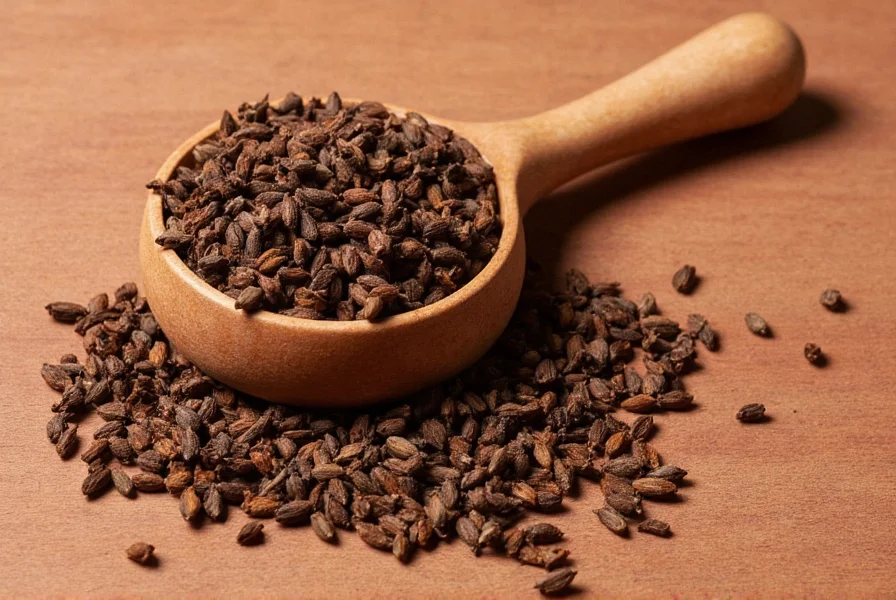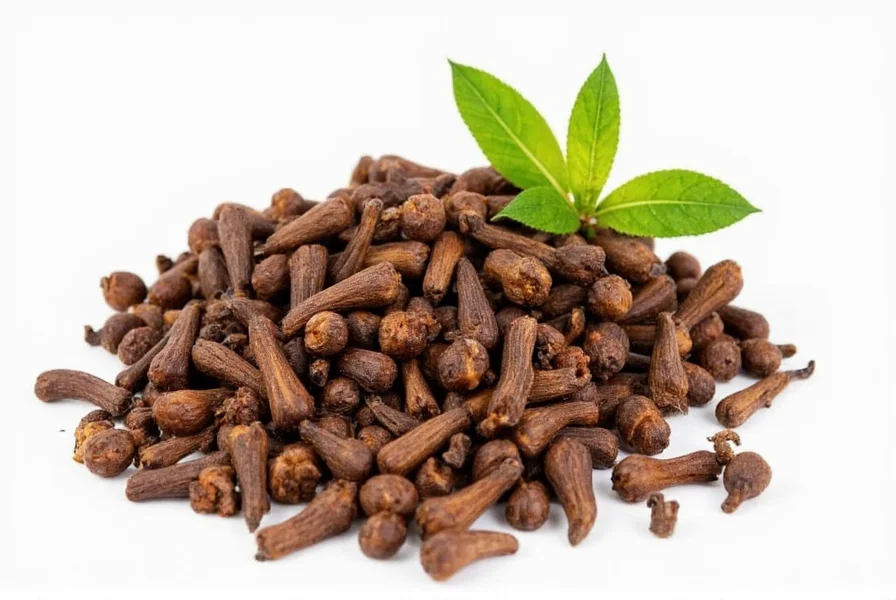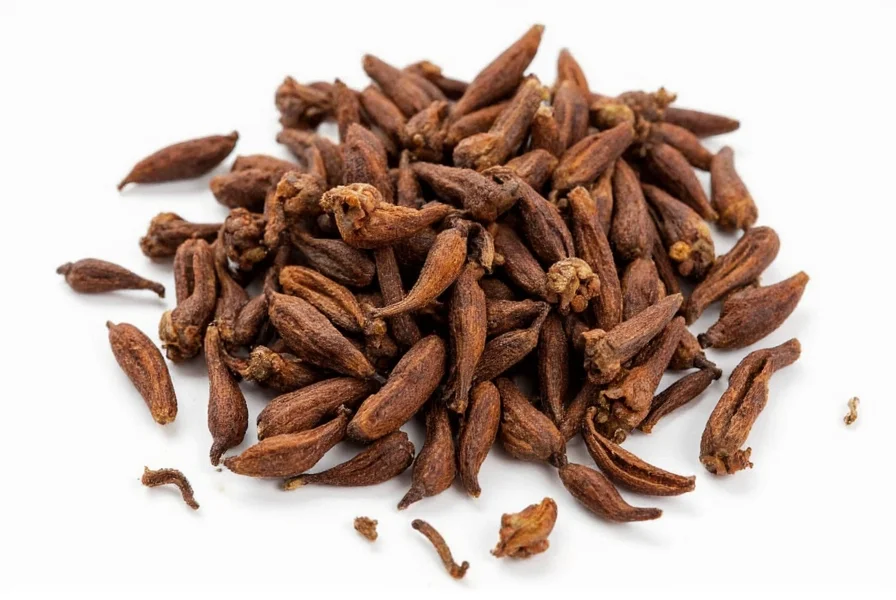Cloves have been treasured for over 2,000 years across civilizations for their distinctive flavor and therapeutic properties. These small but mighty spice buds contain one of the highest antioxidant concentrations among culinary herbs and spices, with an ORAC value exceeding 290,000 μmol TE per 100 grams. Understanding how to properly select, store, and utilize cloves can transform your cooking while potentially delivering significant health benefits.
Botanical Background and Historical Significance
The clove tree (Syzygium aromaticum) grows up to 40 feet tall in tropical climates, producing crimson flower buds that turn dark brown when dried. Historical records show Chinese courtiers chewing cloves as early as 200 BCE to freshen their breath before addressing the emperor. During the Middle Ages, cloves became so valuable in Europe that they were worth more than their weight in gold, driving maritime exploration and establishing major trade routes between Asia and Europe.

Culinary Applications and Flavor Profile
Cloves deliver a complex flavor profile characterized by warmth, sweetness, and subtle bitterness with distinct notes of:
- Camphoraceous top notes
- Woody undertones
- Floral hints
- Peppery finish
Chefs worldwide use cloves in specific applications where their intense flavor shines without overwhelming other ingredients. In Indian cuisine, cloves are essential in garam masala and biryani preparations. Scandinavian baking traditions incorporate cloves in gingerbread and holiday cookies. The spice works particularly well with:
| Food Pairings | Recommended Usage |
|---|---|
| Meats (especially ham and pork) | 1-2 whole cloves per pound |
| Rice dishes | 2-3 whole cloves per cup of rice |
| Baked goods | ⅛-¼ teaspoon ground cloves per cup of flour |
| Beverages (mulled wine, chai) | 3-5 whole cloves per serving |
Health Benefits Supported by Research
Modern scientific research validates many traditional uses of cloves. Studies published in the Journal of Agricultural and Food Chemistry confirm that eugenol, comprising 70-90% of clove essential oil, demonstrates significant:
- Antimicrobial properties against oral pathogens when used in mouth rinses
- Anti-inflammatory effects that may help reduce arthritis symptoms
- Blood sugar regulation potential shown in animal studies
- Dental pain relief properties making it valuable in temporary toothache remedies
However, excessive consumption (more than 2-3 grams daily) may cause liver toxicity in sensitive individuals, particularly children. Always consult with a healthcare provider before using cloves medicinally.
Proper Storage and Selection Techniques
To maximize shelf life and flavor retention, follow these professional recommendations:
- Store whole cloves in airtight glass containers away from light and heat
- Ground cloves lose potency within 6 months, while whole buds maintain quality for 1-2 years
- Select cloves with intact stems and uniform dark brown color
- Perform the float test: authentic cloves sink vertically in water while adulterated products float

Substitution Options for Clove Allergies or Shortages
When cloves aren't available or cause allergic reactions, consider these alternatives for different applications:
- Allspice (use ¾ teaspoon allspice for 1 teaspoon cloves) - best for baking
- Nutmeg (use ½ teaspoon nutmeg for 1 teaspoon cloves) - ideal for creamy sauces
- Cinnamon (use 1:1 ratio) - works well in beverages and fruit dishes
- Pumpkin pie spice (use 1:1 ratio) - suitable for desserts and baked goods
Global Culinary Traditions Featuring Cloves
Cloves play distinctive roles across world cuisines:
- Moroccan tagines - combined with cinnamon and saffron in slow-cooked stews
- Chinese five-spice powder - provides the warming base note
- German glühwein - essential in traditional mulled wine recipes
- Indonesian kretek cigarettes - historically blended with tobacco (though less common today)
Sustainable Sourcing Considerations
As global demand for cloves increases, ethical sourcing becomes crucial. Madagascar, Indonesia, and Tanzania now produce over 80% of the world's cloves. Look for certifications like Fair Trade or Rainforest Alliance when purchasing to support sustainable farming practices and fair wages for growers. Organic cloves typically cost 20-30% more but reduce exposure to agricultural chemicals.
Frequently Asked Questions
What is the difference between whole cloves and ground cloves in cooking?
Whole cloves provide more intense, longer-lasting flavor and are typically removed before serving, while ground cloves distribute flavor more evenly but lose potency faster. Use whole cloves in braises, stews, and pickling solutions; use ground cloves in baked goods and spice blends where uniform distribution is important.
Can cloves help with toothache pain naturally?
Yes, clove oil applied topically can provide temporary toothache relief due to its eugenol content, which has natural analgesic and antibacterial properties. Dilute 2-3 drops of clove oil in a teaspoon of carrier oil and apply to the affected area with a cotton swab. This provides only temporary relief and you should see a dentist for persistent pain.
How can I tell if my cloves have gone bad?
Fresh cloves should have a strong, sweet-spicy aroma. If they've lost their fragrance or smell musty, they've likely gone stale. Whole cloves should feel firm and slightly oily when squeezed between fingers. Ground cloves that have turned grayish or clumped together have likely absorbed moisture and should be discarded.
Are there any safety concerns with consuming cloves?
While culinary use is generally safe, excessive consumption (more than 2-3 grams daily) may cause liver damage in sensitive individuals. Clove oil should never be consumed undiluted. People with bleeding disorders should consult doctors before using cloves medicinally as eugenol may increase bleeding risk. Children under 2 should avoid clove oil applications.
What's the best way to grind whole cloves at home?
For the freshest ground cloves, use a dedicated coffee grinder or spice mill. Freeze whole cloves for 15 minutes before grinding to reduce oiliness and improve consistency. Grind in small batches (1-2 tablespoons at a time) for optimal results. Store ground cloves in an airtight container away from light and use within 3-6 months for best flavor.











 浙公网安备
33010002000092号
浙公网安备
33010002000092号 浙B2-20120091-4
浙B2-20120091-4